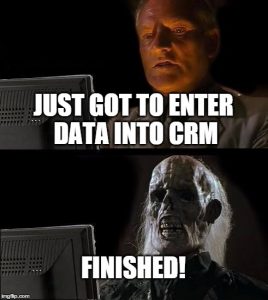Are CRM systems prevalent among businesses today? Are companies of various scales and sectors leveraging this technology? And if so, how are they applying these tools to their business processes? These intriguing questions lay the groundwork for our exploration on the usage of Customer Relationship Management (CRM) systems in the business landscape today.
According to a report by Gartner, worldwide spending on CRM software grew 15.6% in 2018, reaching $48.2 billion. Conversely, a study by IBM suggested that 73% of companies have no process for re-engaging lost customers, implying a significant issue in customer management. These statistics emphasize the need for effective customer management, which can be streamlined by CRM. A CRM software not only enables businesses to track their customer interactions, but also provides efficient ways to manage leads, nurture relationships, and re-engage lost customers, thereby providing a comprehensive solution to the problem.
In this article, you will learn about the versatility and impact of CRM systems in the corporate world. We delve into the realm of CRM usage by companies from various scales and sectors. We will examine the challenges these businesses face and how the implementation of CRM systems can serve as a solution.
Additionally, we explore the potent benefits of CRM software, the ways it can enhance customer relationships, real-life case studies of companies that have successfully integrated CRM into their operations, and guidance on how to navigate choosing the right CRM for your business.

Definitions and Understanding of CRM in Companies
CRM, or Customer Relationship Management, is a strategy used extensively by companies to manage and improve their interactions with customers and potential customers. CRM software is designed to compile information on customers across various channels or contact points between the customer and the company. It stores detailed information on overall purchasing history, personal info, and even customer concerns.
A significant number of companies use CRM systems to not only retain customers but to also drive sales growth. Large organizations, mid-size companies, and small businesses all benefit from CRM use due to its ability to streamline processes, manage and analyze customer interactions and data throughout the lifecycle.
Catching the CRM Wave: Why Today’s Enterprises are Rushing to Adopt Customer Relationship Management
The Need for CRM in the Modern Business World
In today’s dynamic and fast-paced corporate landscape, businesses are constantly in search of strategies that will help them gain a competitive edge. Understanding customer preferences, predicting future trends, and making data-driven decisions have become the fulcrum around which businesses pivot. An important tool that meets all these critical aspects is Customer Relationship Management (CRM) software.
Business enterprise applications
Microsoft 365 Apps for Enterprise
Enterprise Business apps generator
A CRM system gathers and organizes customer data from various touchpoints in a centralized database, aiding businesses to better manage customer relationships, monitor sales processes, and analyze data effectively. It ensures that all customer interactions – whether they are with the sales, marketing, or customer support team – are tracked and evaluated. This evidence-based decision-making approach contributes to improving customer satisfaction, increasing sales, and enhancing process efficiency, making CRM an indispensable component in the business infrastructure.
The Pervasiveness of CRM Systems across Industries
The use of CRM is not limited to one business sector; its widespread adoption extends to various industries. This ranges from traditional sectors like retail and banking to modern, technology-driven sectors like software services and e-commerce. Its omnipresence can be associated with its ability to deliver effective and efficient customer interaction mechanisms, streamlined processes, and valuable insights from customer data.
- CRM in retail helps companies track customer purchases, preferences, and interactions with the brand, thus, helping them identify potential upselling or cross-selling opportunities.
- Financial institutions and banking sectors leverage CRM to manage customer profiles, track their interactions, and improve the overall quality of services.
- For software and IT firms, CRM plays an integral role in managing client relationships, generating leads, and closing deals effectively.
- CRM for e-commerce businesses supports the management of customer profiles, review analysis, and tactical, data-driven marketing.
Moreover, CRM’s versatility suffices the varying demands of different industries, making it flexible and customizable. This not only helps businesses to target their customers better but also ensures they can make the best use of the tool to fit their specific needs.
In essence, the compelling features and practical benefits of CRM are undeniably responsible for its omnipresence in today’s corporate world. The ability of CRM to adapt to industry-specific needs, its essential role in customer relationship management, and data-driven decision-making approach are major contributing factors to its widespread adoption. Hence, it’s safe to say that in the competitive corporate world, CRM is not merely an option, but a necessity.
Supercharging Success: How CRM is Revolutionizing Business Operations across Industries
Is Your Business Truly Benefitting from CRM?
Are you aware of the potential lurking within your business? This untapped power is none other than CRM (Customer Relationship Management) that remains an under-recognised game changer in several successful enterprises. Consolidating all customer interactions and business information into one system, CRM offers an avenue for increasing sales, improving customer service, and streamlining processes. However, too many businesses still fail to realise the full benefits of CRM. Despite its implementation, some companies are stuck in the rut of inefficient operations due to an improper understanding and usage of CRM. Besides, its adoption alone is not enough; understanding how to optimally utilise CRM to fit your business model is the key to unlocking its potential.
Addressing the CRM Misconception
The main conundrum lies in the misconception of CRM as merely a sales tool rather than a comprehensive solution to manage and improve customer relationships. Companies tend to primarily focus on the software’s ability to track sales, neglecting the importance of its other features. As a result, they are missing out on numerous opportunities for business growth and development. By not leveraging CRM’s ability to analyse customer data, create targeted marketing campaigns, and provide bespoke customer service, companies are leaving money on the table and stunting their growth potential. This limited perception and usage of CRM are the key issues preventing companies from driving success through CRM.
Flourishing with Effective CRM Usage
To illustrate CRM’s profound impact, let’s consider two enterprises renowned for their effective CRM usage: Amazon and Starbucks. Amazon attributes much of its customer loyalty and revenue to its sophisticated CRM system, which aids in personalising recommendations, ensuring efficient order fulfilment, and streamlining customer service. Meanwhile, Starbucks uses CRM to tailor personal offers and rewards for its customers, driving repeat business and enhancing customer satisfaction. These companies demonstrate that CRM, when used strategically, is more than a sales tool; it’s a powerful apparatus that accelerates customer relationship building and business growth. Through analysing customer behaviour, predicting trends, and customising offers, CRM can indeed become a silent game changer in leading enterprises.
Beneath the Buzzword: Deconstructing the Ubiquitous Use of CRM in the Corporate Realm
Is Your Business Reaping the Full Benefits of a CRM System?
What if you could predict your customers’ needs before even they do? That’s precisely the power that Customer Relationship Management (CRM) systems offer businesses today. Originally coined in the 1990s, the term CRM now extends beyond a mere buzzword and into a game-changer for modern enterprises. CRM systems have revolutionized the way businesses handle customer interactions, transforming it from a largely manual process into a streamlined, data-driven one. They provide critical insights into customer behavior, enabling businesses to offer personalized experiences, optimize services, and ultimately, maximize profits. Despite these substantial benefits, many companies have not fully capitalized on CRM systems’ potential, either due to lack of awareness or resistance to change.
Untapped Potential: The Roadblock to CRM Adoption
The primary challenge businesses face concerning CRM systems is their underutilization or outright neglect. According to a study by Merkle Group Inc., 63% of CRM initiatives fail mainly due to poor adoption by employees. The reasons for this resistance can range from a lack of proper training, fear or mistrust of new technology, or simply a resistance to change established work processes. This issue is amplified in small businesses, where resources are limited, and the perceived investment may seem more substantial. This hesitation underscores a significant issue – many businesses fail to realize their CRM’s vast potential and consequently, its potential for high return on investment.
Navigating the CRM Landscape: Case Studies in Success
Despite these challenges, there are numerous examples of companies successfully integrating CRM systems into their operations. One such company is Amazon. Their CRM system is arguably one of the most sophisticated in e-commerce, enabling targeted product recommendations based on browsing history, past orders, and demographics. Another instance is Apple, who utilizes their CRM system to provide exceptional customer service. It leverages information from past interactions to offer personalized, efficient support, leading to high customer satisfaction rates. Small businesses have also had their share of CRM success stories, with cloud-based solutions offering affordability and customization. For instance, ManyChat, a small firm specializing in Facebook Messenger marketing, uses a CRM system to segment their prospects automatically, saving time and resources while maximizing their conversion rates.
Conclusion
Have you ever considered the sheer volume of organizations that integrate customer relationship management (CRM) strategies into their operations? Indeed, a striking majority of companies, whether it’s a burgeoning startup or a global conglomerate, are embracing CRM for its remarkable potential in enhancing business operations, customer services, and marketing strategies.
There’s an intriguing journey to discover about how organizations harness CRM systems to optimize sales, automate marketing, and streamline customer service. Therefore, if you’ve been enjoying the content on this blog, you are invited to become a part of our reader community. By following this blog, you’ll gain fresh insights, stay updated with the latest trends, and understand the compelling perspectives concerning CRM systems and strategies. Moreover, we constantly strive to bring you thoughtful, eye-opening posts. Following our blog guarantees you only receive the freshest, most relevant, and valuable content for those keen on enhancing their knowledge about CRM or looking for ways to catapult their business to the next level.
Admittedly, we understand your eagerness to dive deeper into this fascinating world of CRM and uncover its many facets that truly redefine the landscape of business operations. Stay tuned for our upcoming series of blog posts releasing soon, promising to delve even further into advanced CRM strategies, real-life case studies from across industries and break down complex concepts for better understanding. In that respect, your journey of discovery doesn’t end here as we will continue to offer stimulating, informative and valuable content. So, buckle up for an exciting ride into the realm of CRM and witness how modern businesses thrive in this digital age.
F.A.Q.
1. Do a lot of businesses really use CRM software?
Yes, a significant number of businesses across industries use CRM (Customer Relationship Management) software. The software is instrumental in managing relationships and interactions with customers and potential customers efficiently.
2. What are the benefits of using CRM for a company?
CRM helps in improving business relationships, retaining existing customers and enhancing profitability. It also assists in streamlining processes, which in turn boosts customer service and increases customer satisfaction.
3. Are there different types of CRM software available?
Yes, there are various types of CRM software, such as operational, analytical, and collaborative CRM, each offering unique features. The choice of CRM depends on the nature of the business and its specific needs.
4. Isn’t CRM expensive for small businesses?
While some CRM systems may be expensive, there are affordable and even free options available that cater to small businesses. These systems also usually offer scalability, allowing businesses to upgrade as they grow.
5. How can a company decide which CRM to use?
Choosing a CRM system largely depends on your business needs. It is recommended to define your goals, consider your budget, ensure it integrates well with your current systems, and verify the reliability of the vendor before making a decision.



